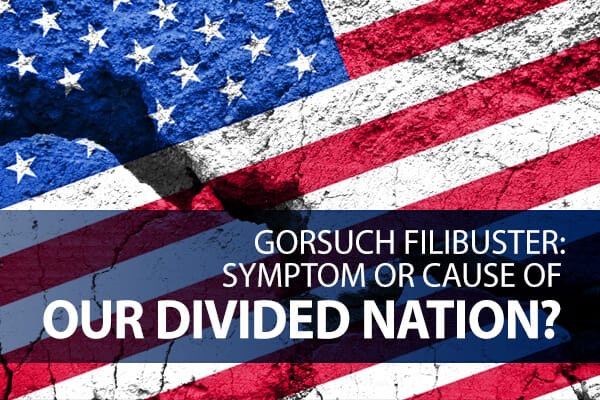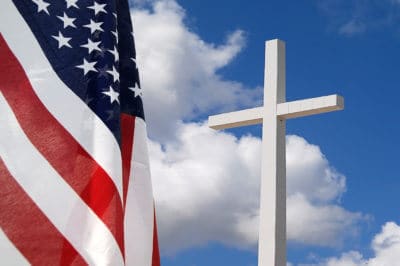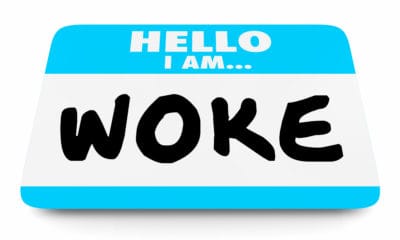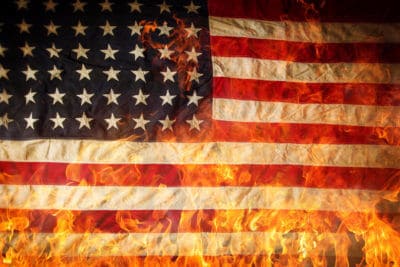By Dr. Richard Land,
Judge Neil Gorsuch has now been confirmed by the Senate and sworn in as an Associate Justice of the U.S. Supreme Court. At age 49, he is one of the youngest judges to be confirmed to the Supreme Court in the modern era. He may very well be sitting as a Supreme Court Justice for three decades or more. Conservatives are ecstatic, and liberals are enraged.
Now what? In 2013, the Democratic Majority Leaders Sen. Harry Reid invoked the “nuclear option,” doing away with the filibuster for all nominations with the lone exception of Supreme Court nominees.
Faced in 2017 with the first-ever partisan filibuster (requiring 60 Senate votes, rather than a simple majority of 51) for a Supreme Court Justice, the Republican majority triggered the nuclear option for Supreme Court nominees as well.
This will change the nature of the Senate, making it a much more partisan, or hyper-partisan body. Perhaps the action of forcing the Republican Majority to do away with the filibuster for Supreme Court nominees revealed the fact that the Senate has already become hyper-partisan.
For example, as late as 1991, during the confirmation hearings of Clarence Thomas (the most bitter, controversial, and divisive confirmation hearings in living memory), Clarence Thomas was confirmed by a Senate vote of 52 to 48, with no thought or mention of a filibuster.
Judge Gorsuch is an eminently qualified nominee, and the fact that the nuclear option had to be invoked is a symptom of deep societal fissures opening up in our culture, and it will add kindling to the bonfire that is smoldering on the horizon. While I supported the Senate’s action, I lament some of the consequences that will follow.
Ending filibusters for Supreme Court nominees will change the make-up of the Court as well. Instead of nominees put forward by Democrat and Republican presidents who could build a consensus of bi-partisan support, they will now be free to nominate highly partisan and divisive nominees, needing only a bare majority for confirmation. This will make the Supreme Court even more ideologically divided, once again reflecting the increasing division in American society.
The country is more divided. In 2000 presidential polling revealed the American electorate to be 29% conservative, 50% moderate, and 20% liberal. Sixteen years and four presidential election cycles later, the same exit polling found that in the raucous 2016 presidential cycle, Americans described themselves as 35% conservative, 39% moderate, and 26% liberal.
In 16 years, while conservatives have grown by 6% and liberals by 6%, moderates have declined by 11%.
Americans have moved to the left and to the right, and the center is hollowing out. As these trends have accelerated, the two major parties have followed suit, chasing their base to the left and right respectively, producing the hyper-partisanship so vividly illustrated by the Gorsuch confirmation process.
These shifting allegiances in American culture do much to explain the improbable, but wildly popular primary campaign of Bernie Sanders and the even more improbable election of Donald Trump as the nation’s 45th president.
The centrifugal forces in our body politic and in American culture are overpowering the centripetal ones.
The evidence is everywhere. Just last week I received an email from a Christian colleague informing me he was “praying for your president.” I replied that Mr. Trump is now our president, just as President Obama was our president. I added that although I did not vote for Mr. Obama, I prayed for him every day, as the Scripture commands all Christians to pray for all who are in authority.
Is Seminary Right for You? Ask These 7 Questions to Find Out
Last year, I observed in The Christian Post in “Donald Trump, Bernie Sanders and the Populist Uprising of 2016: What Should Christians Do?” that the centrifugal forces in our culture were driving us apart and that the increasing divisions and fissures were making unity and consensus ever more difficult.
Looking at the corrosively divisive social landscape, I was reminded then, as I am now, of William Butler Yeats’ famous poem “The Second Coming” written in 1919 in the maelstrom of the civilization-shattering events precipitated by the First World War:
“Things fall apart; the centre cannot hold;
Mere anarchy is loosed upon the world. . . .” — William Butler Yeats
The political center is being vacated (center-left, center, and center right) and Americans and their political and socializing institutions seriously weakened. Americans are segmenting themselves into ethnic, regional, religious, socio-economic, and electronic tribes (Fox, CNN, MSNBC, etc.), which “cocoon” themselves in self-segregated conclaves of those of like-mind.
In the midst of the gathering and accelerating cultural storm, what should Christians do?
We need to shoulder our responsibilities as the ambassadors of reconciliation we have been called to be in response to our having been reconciled with God through Jesus our Savior (2 Cor. 5:18-21). Having been vertically reconciled to God, we have been called both to witness to the power of that forgiveness and reconciliation and to practice the horizontal reconciliation with our fellow human beings that such forgiveness and restoration make possible.
As followers of Jesus, we are in service in our Heavenly Father’s Army and at His command. In our nation’s current political-societal morass, we are called upon to bear witness in words and deeds to Gospel Truth, to function as the moral memory of Judeo-Christian civilization and to call people to listen to what President Lincoln called “the better angels of our nature.”
We must be the reconcilers, helping to transform the poisonous atmosphere of current debate, building bridges across the fissures and seeking to be the peacemakers that our Savior called us to be.
Without Christians acting as ambassadors of reconciliation, the debate will only grow more corrosive and divisions ever more stark.
Fellow Christians, let’s be about our Father’s business!
Prior to becoming the president of Southern Evangelical Seminary in 2013, Richard Land served as the President of the Ethics and Religious Liberty Commission of the Southern Baptist Convention. Currently, he serves as the Executive Editor of The Christian Post.











